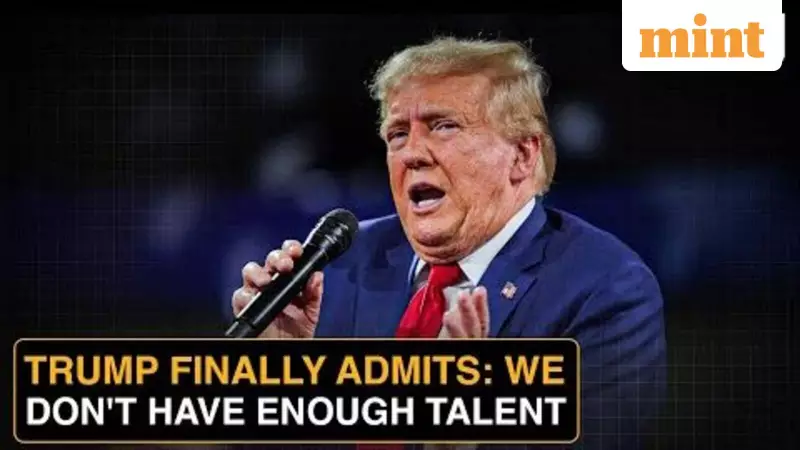
In a remarkable policy shift that has sent shockwaves through political and business circles, former US President Donald Trump has publicly defended the H1B visa program, a system his administration previously targeted for significant restrictions.
A Stunning Reversal on Immigration Stance
Speaking to a popular US news outlet on November 13, 2025, Trump delivered a message that few anticipated from the leader known for his hardline immigration policies. When the topic of skilled foreign workers arose, the former president offered a blunt assessment of America's domestic capabilities.
"You do have to bring in talent," Trump stated, directly challenging the notion that the United States possesses all the skilled professionals it needs. When pressed by the interviewer with the suggestion that America already had sufficient talent, his reply was unequivocal: "No, you don't."
Context of the H1B Visa Program
This defense marks a dramatic departure from the stance Trump maintained during his presidency, when his administration implemented several measures to tighten the H1B visa process. The H1B program is particularly crucial for Indian technology professionals, who have historically received the majority of these visas, enabling them to work for American companies in specialized fields.
The program has long been a cornerstone for US tech giants and other industries seeking to fill positions requiring highly specialized knowledge, particularly in science, technology, engineering, and mathematics (STEM) fields where domestic shortages exist.
Potential Implications and Reactions
This unexpected change in position could signal a significant shift in the US approach to skilled immigration under a potential future Trump administration. The comments are likely to be welcomed by:
- Major US tech companies that rely heavily on global talent.
- Indian IT professionals seeking opportunities in the United States.
- Business leaders who have argued for maintaining access to international skill pools.
However, the reversal may also draw criticism from groups advocating for stricter immigration controls and those who believe American workers should be prioritized for these high-skilled positions. The development sets the stage for a renewed debate on how the United States balances its national interests with the global competition for talent.
The full implications of this statement for future US immigration policy remain to be seen, but it undoubtedly represents a significant moment in the ongoing discussion about America's reliance on foreign talent and the future of the H1B visa program.





